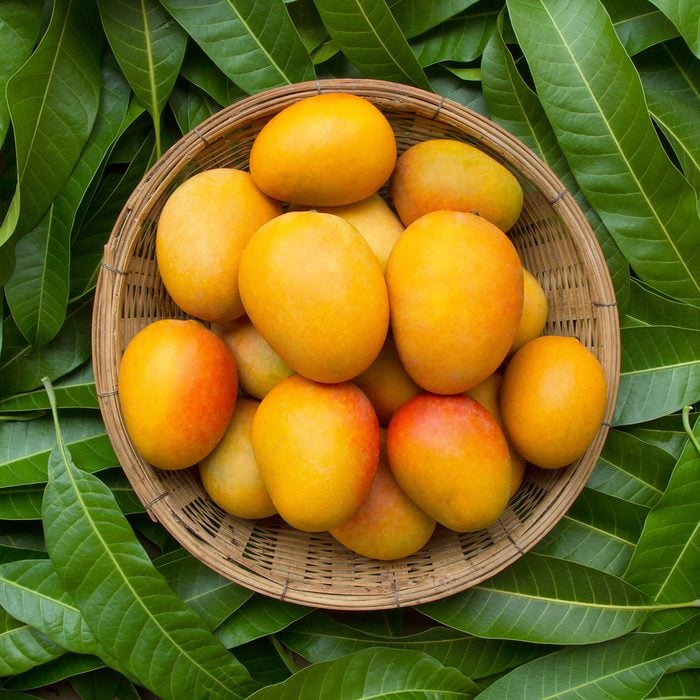
Supports General Wellness
The humble mango is a tropical fruit which is a member of the cashew family. (Really!) But are mangoes good for you? Absolutely—starting with the several antioxidants in its delicious golden pulp. Antioxidants play an essential role in protecting cells from harmful free radicals. Snacking on antioxidant-rich foods like mango, blueberries, and strawberries is a simple way to support a healthy lifestyle.
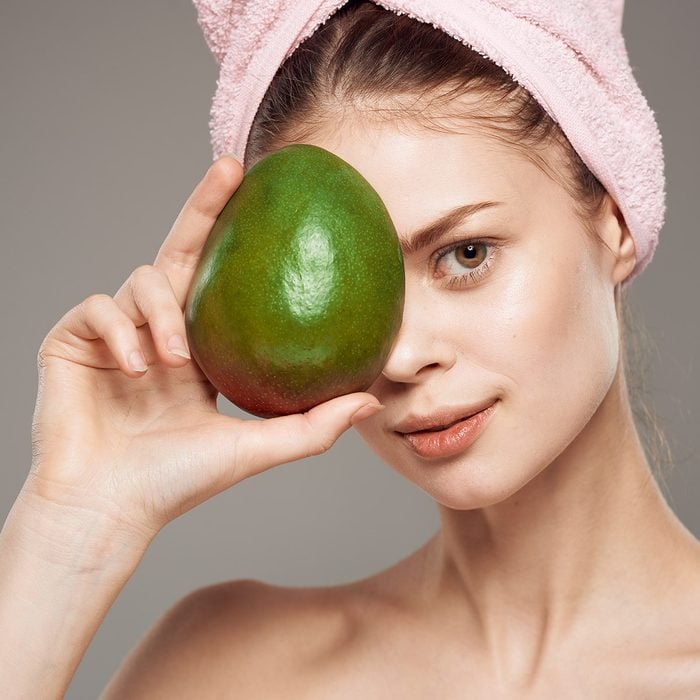
Gives Skin a Healthy Glow
Eating mango is a great way to improve your skin from the inside out. Mangoes are rich in vitamin C, which plays a major role in skin health and may even help reduce the signs of aging. Here are plenty of other foods that are good for your glow.
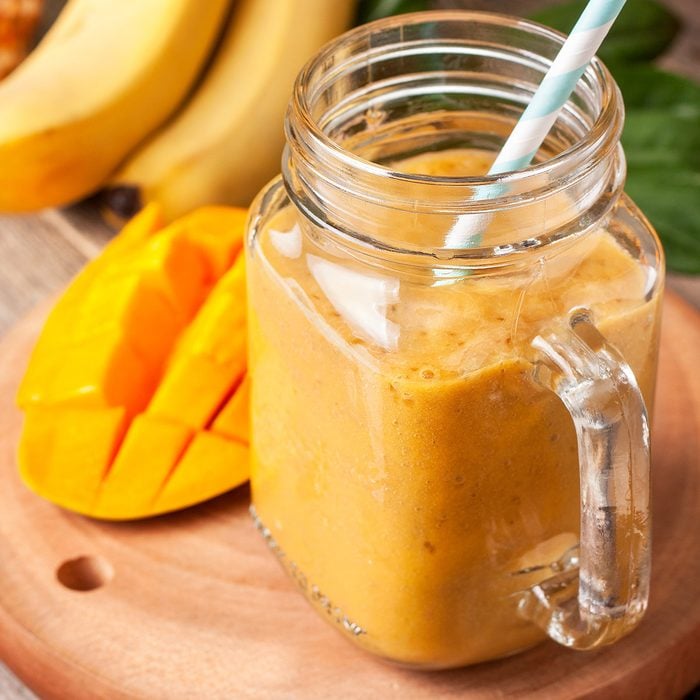
Improves Your Immune System
Along with its high vitamin C and antioxidant content, a single one-cup serving of mango also has about 10% of our daily dose of vitamin A, another must-have to support a healthy immune system.
Learn how to cut up a mango and see if it doesn’t help you keep the bugs at bay!
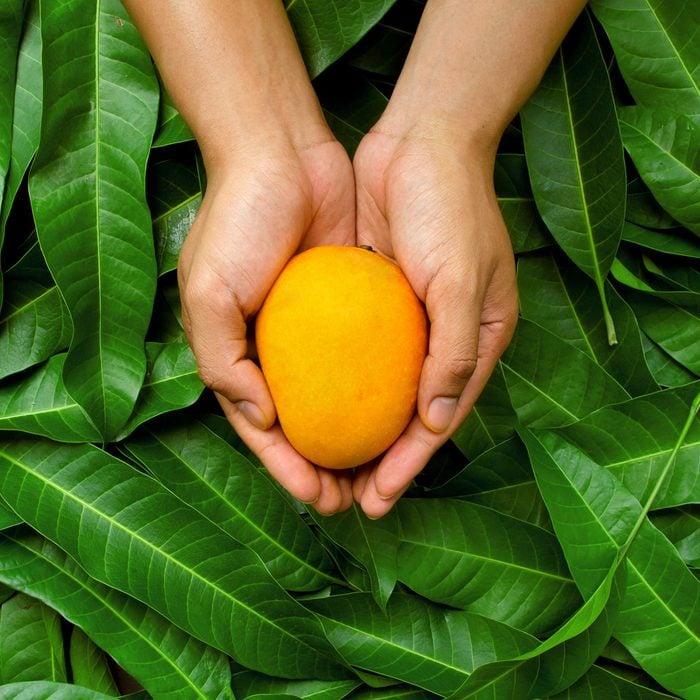
Helps You Feel Fuller Longer
One of the benefits of mango is being able to help with weight loss. A one-cup serving of mango has 2.6 grams of fiber, which can help you stay feeling full longer. Plus, it makes a great substitute for junk food when you’re in the mood for something sweet! One thing to note—mango is high in sugar, so don’t go overboard.

Encourages Prenatal Development
A serving of mango boasts more than a few nutrients to support the healthy development of your baby. One cup of this marvelous fruit has significant amounts of vital vitamins and minerals like vitamin C, A, B6, and folate, amongst others. Here are a few other great foods to eat while pregnant.
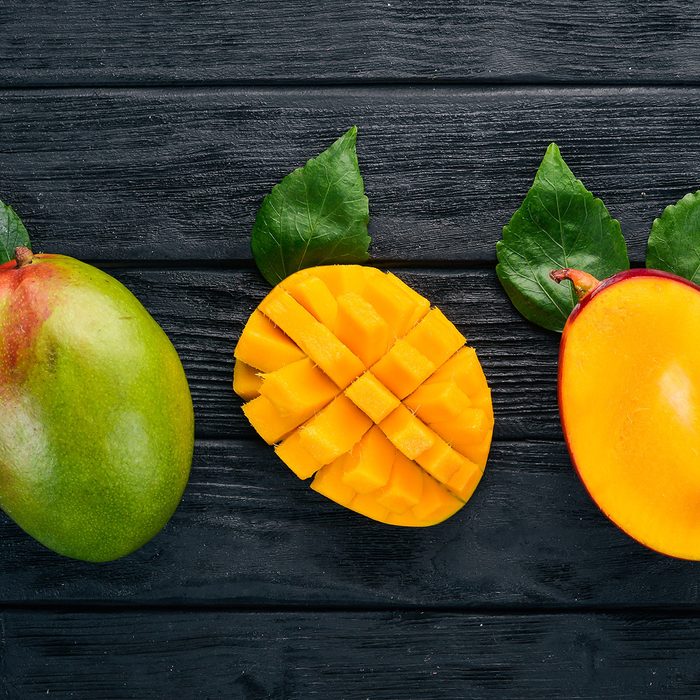
Helps With Digestion
Fiber is a must for promoting a healthy digestive system and mangoes really deliver in the fiber department. Eating more fiber can do everything from keeping you regular to helping control blood sugar, lowering cholesterol—and may even help with reducing the risk of heart disease.

Keeps Your Eyesight Sharp
Eating for eye health isn’t all about carrots. The world’s most popular fruit has the carotenoids lutein and zeaxanthin as well as vitamin A and beta carotene, all of which are crucial to supporting eye health and maintaining eyesight.

May Help Reduce Cancer Risk
According to recent studies, incorporating a bit of mango into your diet may help reduce the risk of certain types of cancer and reduce inflammation in the body. Sounds like a great excuse to eat more mango to us!

Packs a Powerful Nutritional Punch
So is mango a superfood? From the fiber to vitamins and the fantastic flavor in between, we’d have to say yes. In addition to having all sorts of vitamins and minerals, mango is low in fat and only has about 100 calories per serving.
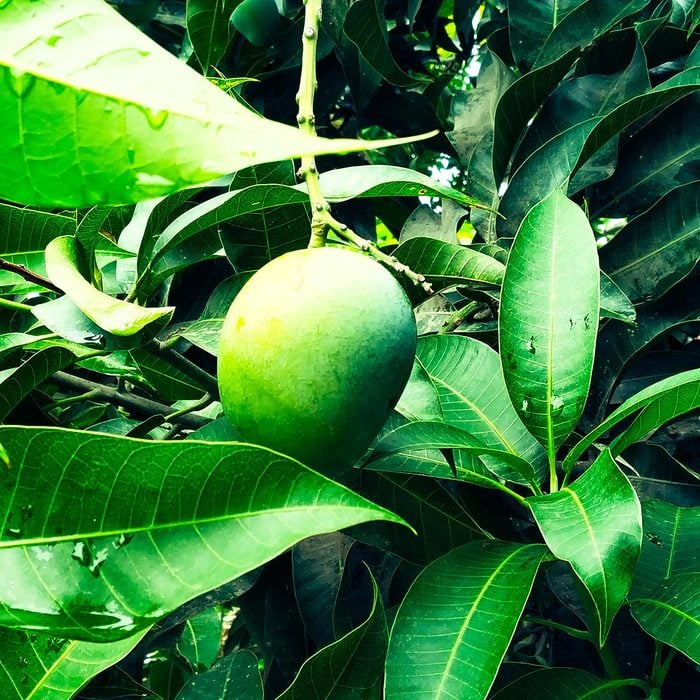
A Word to the Wise
For as wonderful as they are, not everyone should eat mangoes. Although it’s fairly rare, some people are allergic to mangoes which typically manifests as contact dermatitis or a skin rash. If you’re unsure whether or not you may be allergic to mango, consider getting tested before adding it to your diet.
